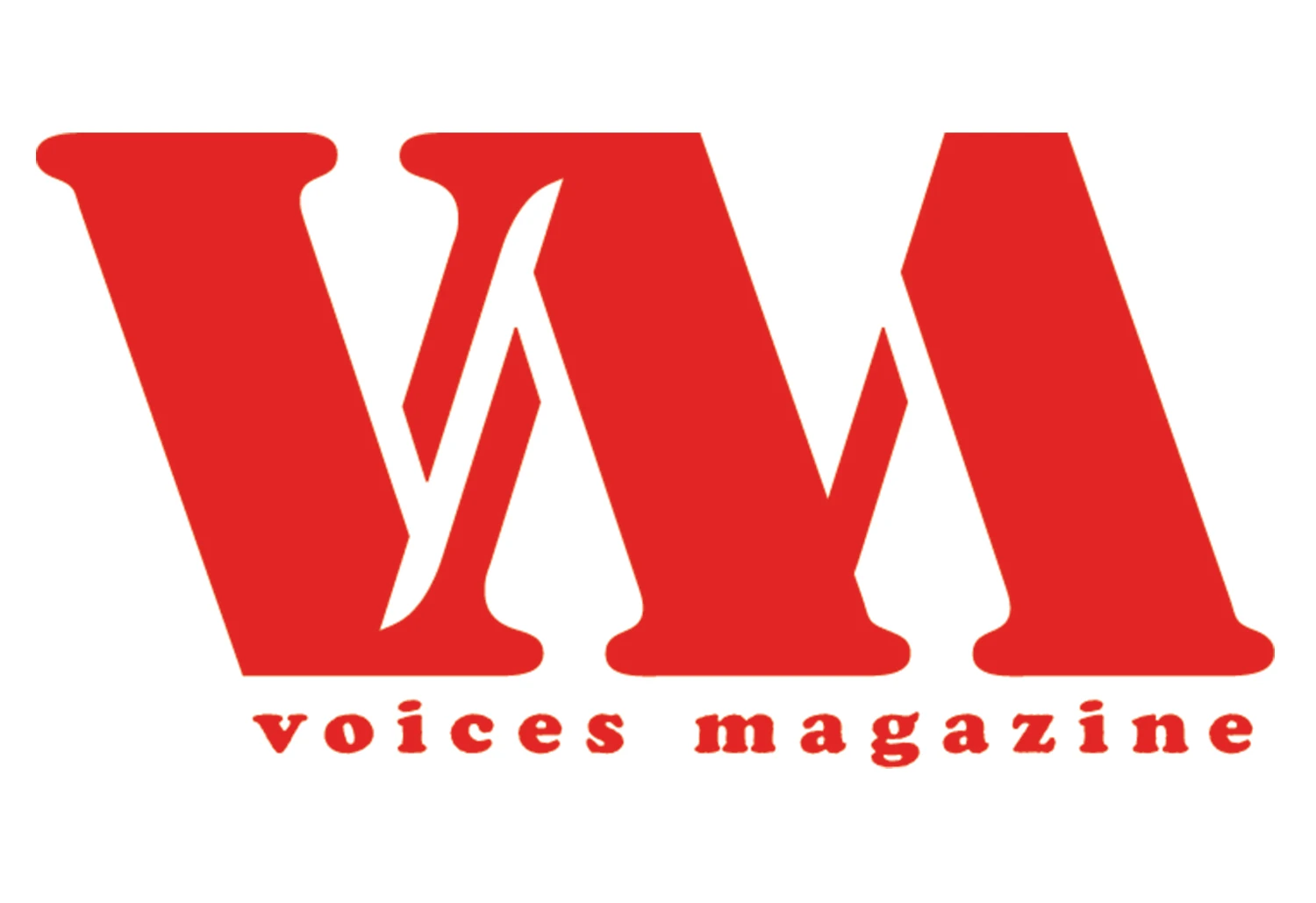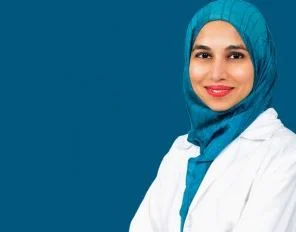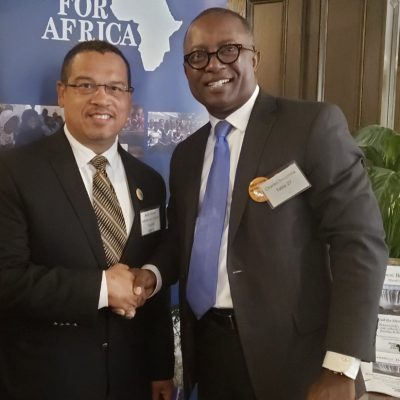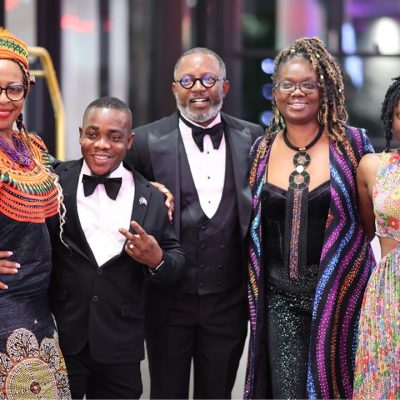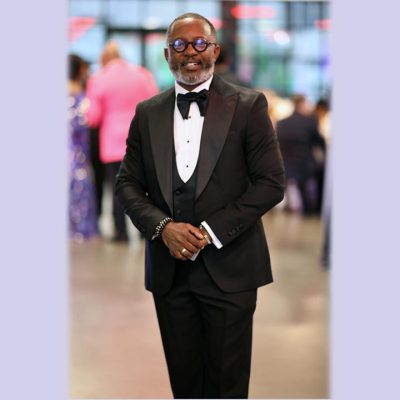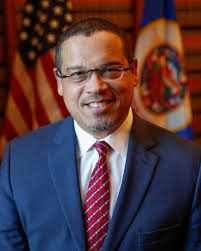Dr. MARIAM ANWAR, AXIS MEDICAL, MN.
“There are no shortcuts to any place worth going.” Beverly Sills. I grew up with this motto. From a very early age, and throughout my adolescent life, my mother instilled in me the importance of having a vision and working towards it. Another quote that greatly influenced my life is this one by Patrick Suskind, he writes, “Talent means nothing, while experience, acquired in humility and with hard work, means everything.”
I grew up in Saudi Arabia and moved to Pakistan at age 13. During my school years, I loved science, especially biology and life sciences. I wanted to pursue a career in microbiology. My mother advised me to be either a doctor or a dentist because microbiology and the life sciences did not represent significant career and earnings potential in Pakistan at that time. An educationist by profession, my mother has always been an inspiration to me. However, I thought why restrict myself to the mouth when I can study about the entire body. Subsequently I applied to medical school after completing Advanced Level (which is equivalent to high school).
In Pakistan, there is no requirement for an undergrad degree before attending medical school. I was passionate about learning; I took studying as a challenge, as a fun activity. It excited me. I paced myself well and did not cram. I hated stress. Studies are about attitude, if you have the right attitude, you can achieve anything. Once I failed a chemistry test, I got 43%. My heart sunk. It was the lowest grade I had ever gotten. Then, the teacher announced that 35% was the passing grade and I had gotten the 3rd highest in class. Still, in my mind 50% represented the passing grade. One of the challenges in life is keeping your standards high, and working to the best of your abilities. Comparisons are inevitable, but I feel they should not be demoralizing.
I completed medical school at Aga Khan University, the premier medical school in Pakistan. Med school was demanding but exciting. I learned valuable life lessons – of families willing to sell their homes and possessions to pay for medical treatment. It was humbling and taught you not to take anything for granted. Treating malaria, typhoid, cholera, in the rural suburbs of Karachi, treating iron overload of thalassemia, tapping ascites due to cirrhosis, watching open-heart surgery, and knee replacements, ensured medical school was a difficult, but stimulating experience.
I got married following graduation, studied for the USMLE exams and came to the US with my husband. I aspired to be a cardiologist in medical school and residency. However, after observing the long working hours my uncle, Dr. Murad, an amazing and inspiring cardiologist in the twin cities, put into his work, I realized it would require a lot of sacrifice for the family. I eventually settled on Geriatric Medicine because I love working with the elderly. I completed my training at Hennepin County Medical Center in Minneapolis where I had superb teachers and mentors. The support I had from my husband, mother and in-laws was very instrumental for me.
Young immigrants in the US have a lot of potential. We have rich cultural backgrounds, strong family systems and values, and come equipped with experience of a culture of hard work. According to Anthony Bourdaine, “No one understands and appreciates the American Dream of hard work leading to material rewards better than a non-American.” My motto is to be realistic. If you have the interest and support of family members, a willingness to work hard, then I would advise our youth to undertake a career in medicine. I would caution potential medical students against pursuing medicine only for the financial gain, status or pressure from family members. Medical training is long and intense and requires a strong commitment. The ideals goal is to be a physician for the love of medicine, and for the love of helping people. The health care profession is one of the most rewarding, because you are constantly doing something new, learning something daily, helping someone in an area where they are most vulnerable, which is their health. The gratitude expressed by the patients makes this one of the most rewarding professions.
Because medicine is intense and arduous, commitment is important, because it is a challenge to balance work and family life and find joy in both spheres without succumbing to pressure. I have two little children and my husband travels frequently. What keeps me happy is love for my work. I once diagnosed and treated an elderly African woman with syphilis and she stated that she felt better than she had felt in 30 years. In truth, medical work is like detective work. I feel like a detective examining clues to unearth answers. I had an elderly male with a history of stroke who stopped walking. He traveled from Rochester to see me. His head CT, cardiac ultrasound were all unchanged. I evaluated his mood and his memory. He was developing dementia. Lo and behold, after initiating the appropriate therapy, he started walking again and his family was so happy with his transformation.
At the end of the day, I feel like I have helped people. I cherish the relationships I have with my patients and staff who help me on a day-to-day basis. I work a lot with Somali patients and I cherish the prayers I get. Because we share the same religion and a similar cultural background, I feel that I can understand their health needs better. I see a lot of gastro-intestinal reflux disease, H. pylori bacteria, primary ovarian insufficiency, vitamin D deficiency, and diabetes mellitus in Somalis. Somalis have their own linguistic terms. The word ‘gas’ means reflux. ‘Fever’ means a sensation of ill-being rather than actual temperature. ‘Rheumatism’ is arthritis. There is a high prevalence of post-traumatic stress disorder.
I advise patients to be open with their physician; he/she is your advocate for health. Your emotional and spiritual well-being is as important as your physical well-being. The level of medical intervention a person chooses for himself and his/her family member should be according to their baseline health status, memory and values. Medications help as well as cause adverse effects. It is important to discuss your medications with your provider at every visit, discuss interactions and indications and take them as directed. I had a patient who took multiple medications a day. He threw them all together in a bottle, mixed them up well and picked a handful daily to swallow. Providers kept on adding more medications wondering why his blood pressure was not at goal. Be honest with your provider and do not be shy about asking questions. I find that health literacy is often over estimated.
With the start of the Affordable Care Act, I am hopeful health care will be available for the currently uninsured and that is a positive change, however its effects remain to be seen. Anyone purchasing coverage on the individual market (that is, seeking coverage by themselves, outside of the context of employment), employees of small businesses and anyone whose income may qualify them for Medical Assistance or Minnesota Care should look into it.
In summing up, I will use a quote by Thomas Jefferson, he said, “I’m a great believer in luck, and I find the harder I work the more I have of it.” If I could rephrase that, I would substitute the word ‘luck’ with ‘prayer.’ My quote would read, “The harder I work, the more my prayers are answered.” I am thankful to God for my achievements. A person’s health, work and career to some extent, are in their hands. I believe firmly in choice. One can choose to be either happy or sad, and choose to work hard or not. Often people have no control over their circumstance, but have control over their emotions and actions. To control your attitude and behavior and take accountability for your actions is the biggest battle.
